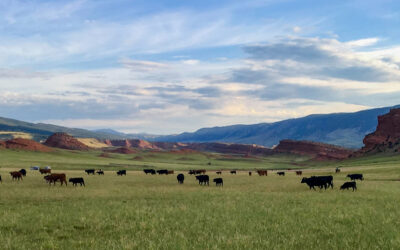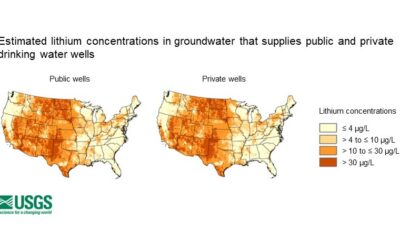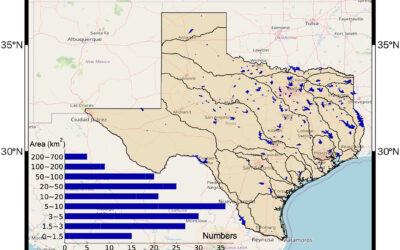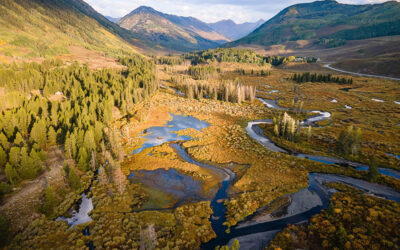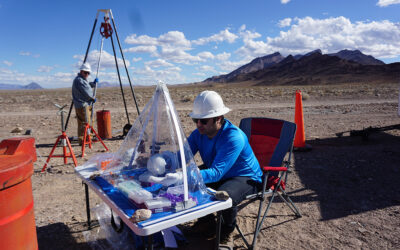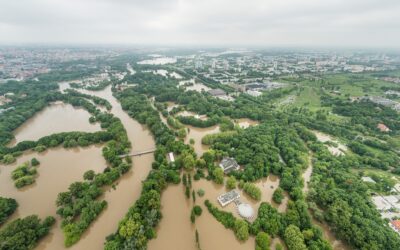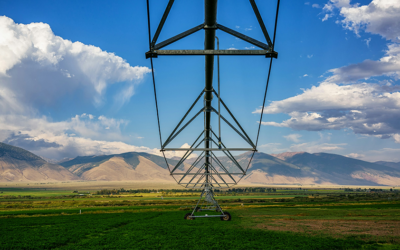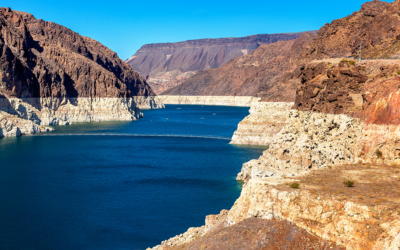Relying on water storage won’t be enough to make up for declines in future water availability under a changing climate, new study shows. Beatrice Gordon, lead author of the study and sociohydrologist and postdoctoral researcher at DRI, says the research is needed to inform water management at the local level, where most decisions are made.
New Study Estimates Lithium in Groundwater That Can Be Used for Drinking Water
DRI researchers Monica Arienzo and Daniel Saftner are coauthors on a new study led by the USGS that examines lithium levels in groundwater aquifers used to supply drinking water across the U.S. The new estimates can help health researchers determine potential connections between lithium exposure and human health outcomes.
Every Drop Counts: New Algorithm Tracks Texas’s Daily Reservoir Evaporation Rates
A recent collaboration between DRI and Texas A&M University researchers provides state of the art, real-time evaporation estimates for improved management of water supply reservoirs throughout Texas.
Rising Temperatures Will Significantly Reduce Streamflow in the Upper Colorado River Basin As Groundwater Levels Fall, New Research Shows
Climate change will dramatically impact streamflow and its contributions to the Colorado River by increasing forest water use and reducing groundwater levels, new study finds.
New Method Reveals Hidden Activity of Life Below Ground
DRI’s Duane Moser, Ali Saidi-Mehrabad, and Molly Devlin co-authored a new study that examines the genetics and life strategies of microbes living deep below Earth’s surface. Dr. Moser and his lab conducted the fieldwork for the research as part of their work studying deep wells located in the Death Valley regional flow system.
DRI’s Christine Albano Co-authors Groundbreaking New Research in Groundwater’s Role in Ecosystem Sustainability
A new study published in Nature Water used satellite data spanning 38 years to examine how groundwater-dependent ecosystems (such as wetlands, meadows, and springs) in California respond to fluctuations in groundwater levels. The research can help shed light on how water management practices can best account for ecosystem needs in addition to those of human society.
A Fresh Look at the Drivers of Extreme Flooding
A new study in Science Advances finds that compounding effects of flood drivers can complicate and exacerbate the risk of extreme floods in watersheds around the world. DRI’s Guo Yu, Ph.D., assistant research professor of hydrometeorology, co-authored the research.
Meet Bea Gordon, Ph.D.
Beatrice, who also goes by “Bea,” is an interdisciplinary hydrologist with a deeply embedded concern for water availability born from her childhood on a Wyoming ranch. She is focused on working with communities in rural Nevada to understand their needs for effective climate adaptation.
New Study Reveals Impacts of Irrigation and Climate Change on Western Watersheds
DRI’s Justin Huntington coauthored the new study, led by researchers at the University of Montana and the Montana Climate Office, which published mid-December in the Nature Journal, Communications Earth and Environment.
DRI, UNLV to Partner on Regional Climate Innovation Consortium
The National Science Foundation (NSF) today announced a multi-institutional consortium – which includes UNLV and DRI – to confront the climate challenges facing the desert Southwest and spur economic development in the region.
